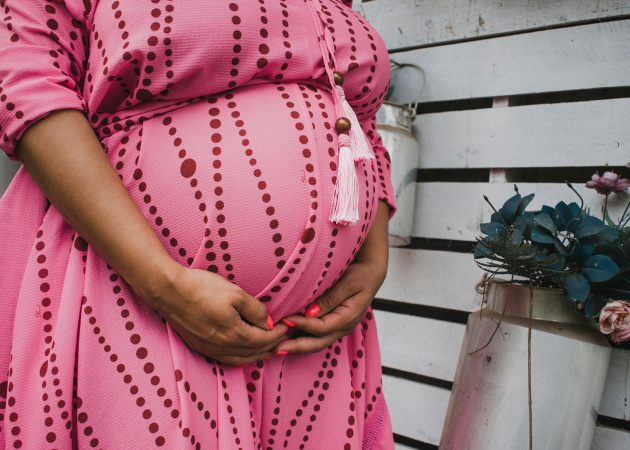
Yesterday (October 7), several media outlets reported on a migrant caregiver giving birth at her employer’s home, using headlines like “Unbelievable” and “The Most Ridiculous Migrant Worker.” Public opinion overwhelmingly blamed the caregiver for unexpectedly giving birth in Taiwan. As a video, which should never have been made public, continued to spread wildly on social media, numerous comments emerged from the employer's perspective, such as “The employer is so unlucky; they even have to help with postpartum care.”
However, should we really view the situation of a migrant worker giving birth at her workplace with such cold-heartedness and curiosity? Shouldn't we be asking what this worker, as a female laborer, has gone through? Shouldn't we question what kind of system leaves migrant workers so vulnerable, forced to give birth alone, and then ridiculed as “the most ridiculous case” by society?
We must say: The most ridiculous thing here is not the migrant worker, but the system and society at large.
Under gender equality laws, maternity leave is a basic right for everyone. Migrant workers pay for health insurance in Taiwan, and they should naturally be entitled to the same medical and maternity resources. It's understandable that employers may feel frustrated during the worker’s absence, but blaming the migrant worker is the last thing that should happen. Due to gaps in the public long-term care policy, most caregiving tasks fall on private caregivers. How is it that when a migrant worker is absent from their post, there are no other care options, yet this vulnerable group becomes the target of public criticism? If Taiwan’s long-term care resources were as effective as the government claims, why are so many caregivers denied even a single day off in three years, and why is giving birth subject to such harsh scrutiny?
We would like to share an article by Huang Zi-hua, Secretary of the Taoyuan Domestic Caretakers Union (DCU). DCU is a union formed by domestic caregivers that has long assisted in labor disputes for migrant caregivers and advocated for direct hiring processes for employers of migrant workers.
Recently, a video of a migrant caregiver giving birth at her employer's home has been circulating, with people mocking and criticizing her—this is truly unbelievable.
In the video, the care recipient is safely seated in a wheelchair. I don’t understand why the employer’s family would post this video for public judgment. How would you feel if someone posted a video of your wife, mother, sister, or friend giving birth without their consent?
But you'll never have to experience this, because you won’t face a surveillance camera in every room, and you won’t have to give birth alone at home.
Is it normal for migrant workers to live without privacy like this every day? The Ministry of Labor's “Foreign Worker Care Service Plan” states that employers must guarantee the privacy of migrant caregivers. So, is it acceptable to aim a surveillance camera at their bed? This is a clear violation of privacy. Will the government impose any penalties?
I’m not sure if this caregiver chose to give birth at home, but seeing that no one was there to help her in the video, I suspect she had no other choice. If someone had told her that she could take maternity leave and go to a hospital, with health insurance covering her costs, I believe she wouldn’t have wanted to give birth alone at home. To endure the pain of childbirth alone, without any monitoring equipment for the baby’s condition, without any support or comfort—this brave mother’s strength is heartbreaking. That both mother and child are safe is a miracle.
Regarding the rights of migrant caregivers to give birth, honestly, if you, your wife, mother, sister, or friend can take maternity leave, so can a migrant worker. Taiwan’s Gender Equality in Employment Act doesn’t discriminate against anyone; maternity leave is a basic labor right for all workers.
Whenever the topic of migrant workers giving birth comes up, some people start making absurd comments about how the employer is now responsible for postpartum care. Hello? The employer's legal obligation is simply to provide maternity leave to the worker, not postpartum care. The real issue for employers is the gap in caregiving coverage. But doesn’t this same gap exist when a migrant worker takes time off to visit their family? Hiring a migrant worker inevitably comes with these gaps. It’s a common problem, not one that needs to be sensationalized or targeted.
Currently, the government offers respite and short-term care options to help employers during caregiving gaps. But these solutions have limitations: not enough hours are offered, and there is no nighttime care. Employers are often left with no choice but to rely on family members to take turns caring for the individual, or spend more money to hire domestic caregivers or move the care recipient to an institution. Is this difficult? Of course, it is.
But this is not the fault of migrant workers—it’s because the government hasn’t done enough. Employers of migrant caregivers are often long-term care families, and they need more public policy support to handle caregiving gaps. We urge the Ministry of Health and Welfare to stop turning a blind eye!
[Written by TIWA (Taiwan International Workers Association)] 2024-10-08
[photo by Mateus Campos Felipe for unsplash]
